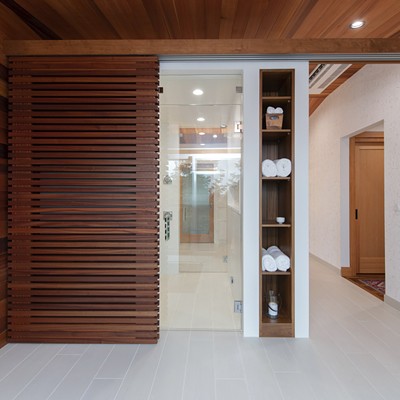Q: I think my child is ready to start potty training. I know I am sick of changing diapers. What is the best way to start?
A: It is funny that one of the most basic and elemental things we do as humans can be associated with such stress and difficulties. Potty training is an age-old dilemma. I think it’s a lot easier as a parent to screw up a child’s normal elimination than it is to train them to do things the way we think they should.
Most kids seem to be ready when they are ready — for some this is at 18 months, for some it is at age 4. Our desire to have them ready for day care, or keeping up with our cousins’ kids, makes potty training as stressful for parents as it can be for the child. I think our kids pick up on this stress, just like a horse senses a rodeo rider’s nerves before the gate is open — and this can make for a rougher ride.
I recommend that parents try to be as positive and encouraging about elimination as possible. Start by involving the child with diaper care, by having them let a parent know when they are messy or wet. Maybe the child can get a fresh diaper or throw the soiled diaper in the can and help with washing up afterwards. If a child is not interested in those simple elements, I would venture to guess that he or she is not ready to dive in to the full program. If the child does go along with these simple steps — and the parent is up for the challenge — then it is time to head out and pick up some big-kid undies. It is much better to make this an event — get the user’s input as to fit and finish. Also, you’ll need to create a pleasant potty experience. A potty-chair is great if you don’t mind emptying it. If you want your child to use a full-size toilet, have a stool or bench to support their feet and a proper training seat. Otherwise the porcelain throne can be a bit scary for some kids.
Next, we want to set the trainee up for success and reinforce the attempt rather than the results. For this, I recommend a sticker chart by the toilet. Ground rules are that the child gets a sticker just for trying and two stickers if there are actually results.
Then you need to set a watch and suggest the child try every hour or so. I know it’s a lot of work, so everybody needs to be up for it. It is often helpful if the stickers add up to something meaningful. It needs to be a timely reward and something of interest to the child, such as a little car or little doll. Put the coveted item up on a shelf near the toilet and cheer them on as they get closer to their goal. The trainee should be able to earn the prize at the end of the day — rewards need to be timely and meaningful. Don’t expect a kid to keep up the effort if it is to earn money towards college tuition.
Accidents are going to happen, presenting parents with a great opportunity to show their child that elimination is natural and nothing to worry about or stress about. This is often an easier attitude to convey during the summer, when they wear fewer layers of clothing.
Don’t expect them to be dry at night unless they are dry during the day, and don’t expect them to be comfortable with No. 2 on the toilet until they are comfortable with No. l. Some kids get it down in a few days; for others it can take much longer. It is hard to relax and take care of business if you are rushed, stressed or scared.
Be prepared for some natural variation at work. Some kids make us think we are the world’s greatest potty trainers, while another child in the same family can test us to our limits, even though the same techniques are used. This is a good sign that success likely has more to do with the trainee’s style than the trainer’s.
And I have to note, it is important to make the distinction between a child being ready to potty train, and a parent being ready for them to be potty trained. I have seen many a war being waged in the bathroom between parent and child. Often the child prevails, to the chagrin of the parent, because you really can’t make a kid sleep, eat, poop, or pee. But you can try to set them up for success, take some of the stress out of the whole process and get on with living and playing.
















